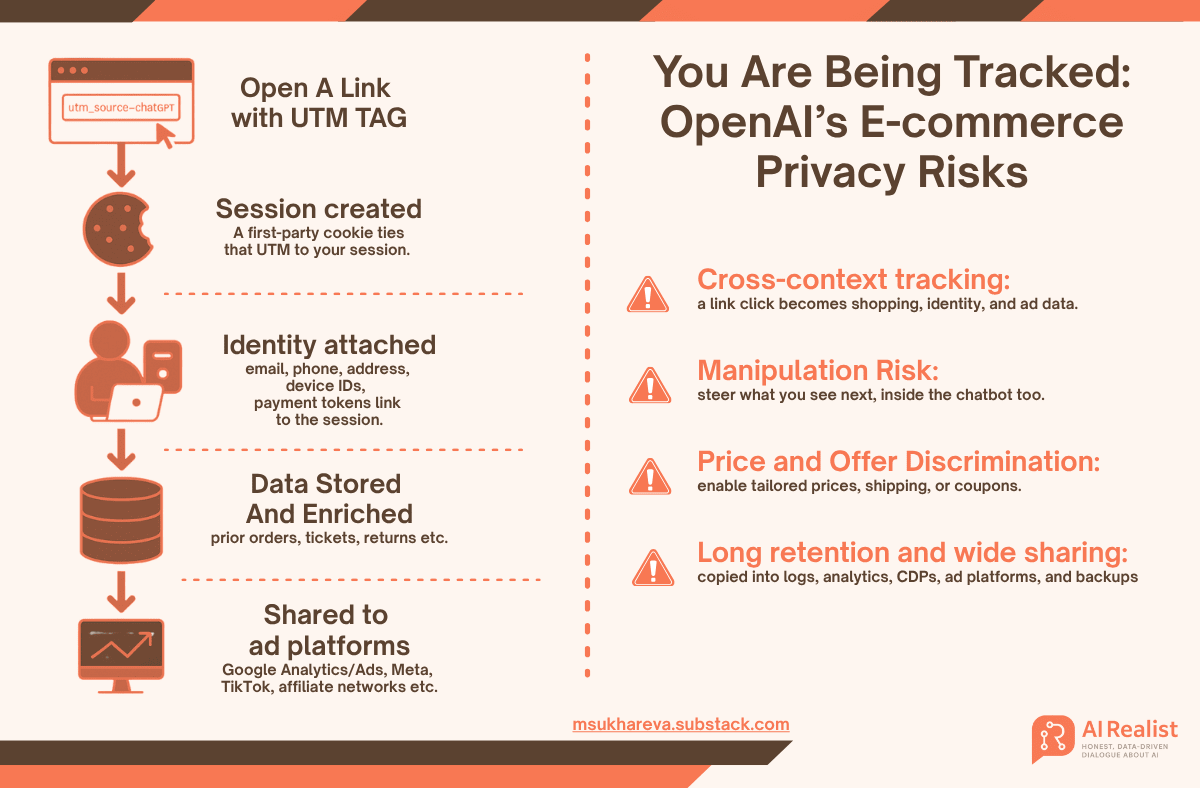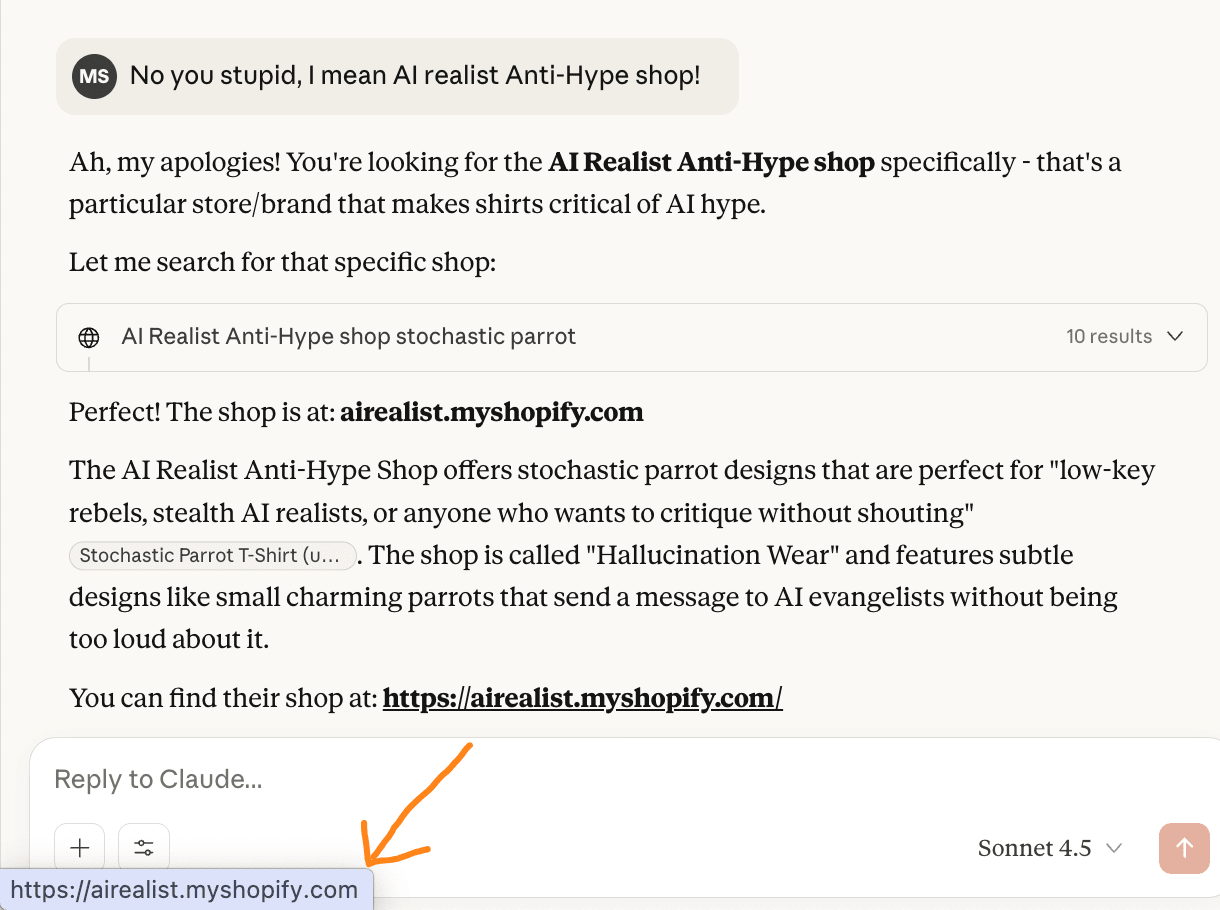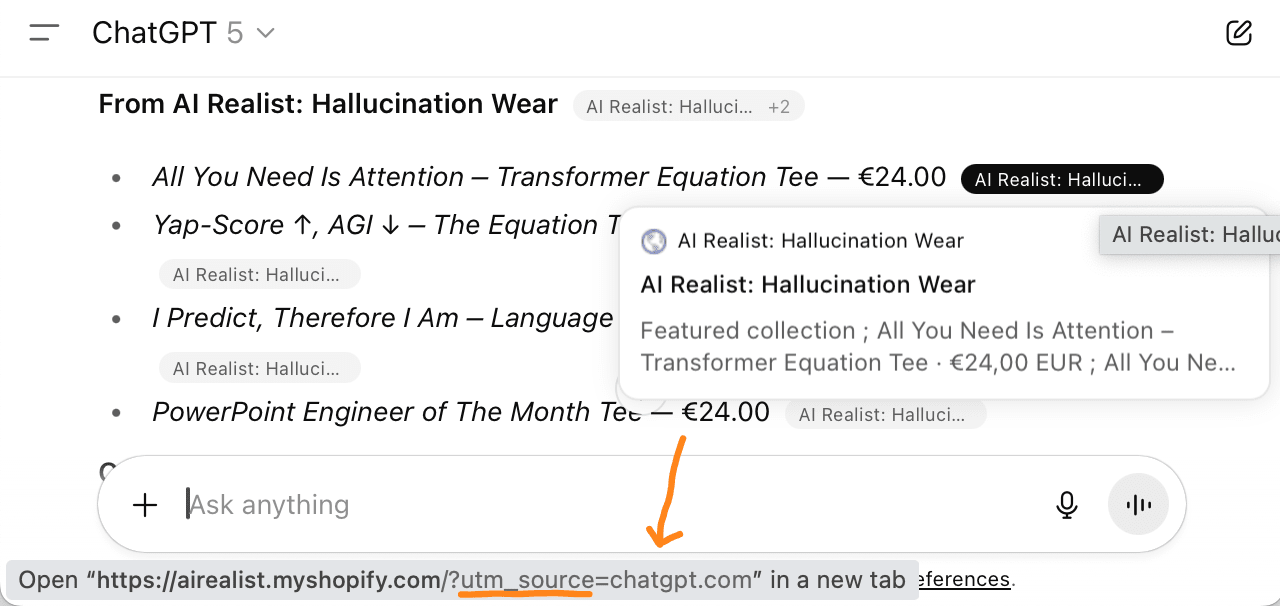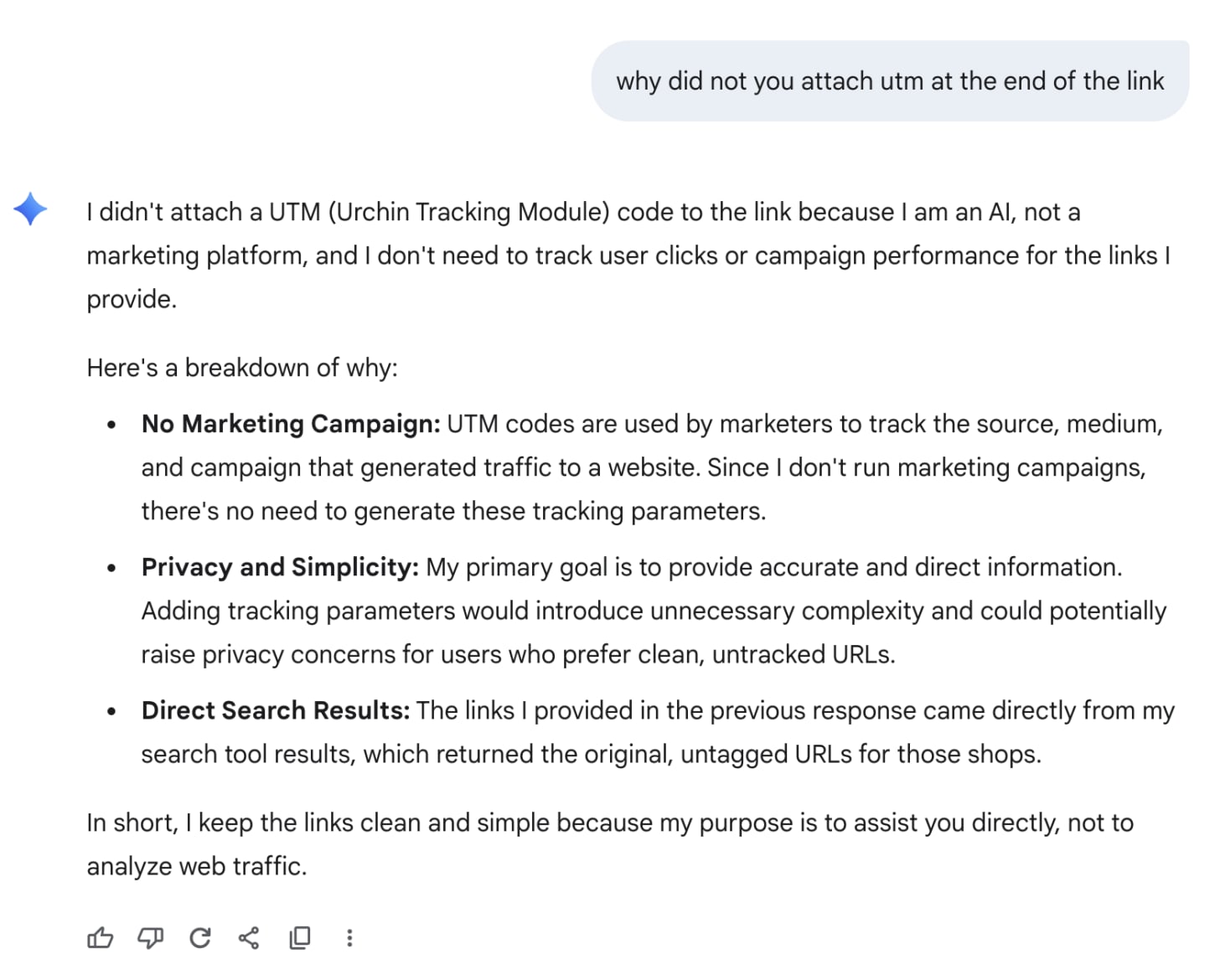OpenAI urgently needs to make money. Its most valuable product isn’t the LLM - it’s the users. The company has now set up an efficient way to track your behavior online and sell that data to marketers. The setup might look harmless - a tiny UTM parameter - but it can reveal a lot about you and can ultimately influence what you’re shown in the chatbot and what information is transferred to third parties.
This post explains what those tags are, the privacy risks they create, why they are not as harmless as they seem, and how to block them on all your devices so OpenAI can’t capitalize on your data and manipulate your behavior online.
The world waited for cancer cure and got crochet from Etsy.
ChatGPT has recently announced a partnership with Shopify and Etsy, supported by Stripe, that will enable direct payments inside ChatGPT.
This was not a surprise. Model providers have long hinted at entering e-commerce. In May, it was reported that Google was testing ads in third party chatbots.
Last December, there were reports that OpenAI was exploring possible advertisements chats. In April, they released a service for searching products directly inside the chat. They claimed it would be based purely on user queries, and that they would not receive a kickback from purchases made through the system.
In other words: pure charity — just helping people find what they need. And yet, they quietly introduced one very important feature specifically designed for marketing and tracking kickbacks: UTM-source=chatgpt in their links. When they launched their product search in April, they mentioned in their announcement that this would be the case. They are just so helpful that, out of pure kindness, they also want merchants to be able to track. OpenAI unconditionally cares about everyone.
What about other providers? Are they also that charitable? For example, if you ask Claude, Where can I buy funny T-shirts with stochastic parrots for AI realists? it will show you a lot of random shops with non-stochastic parrots. But if you clarify and say, No, you stupid, I mean the AI Realist Anti-Hype Shop, it will do the following:
As you can see you get the link with no UTM tags. I did not find public confirmation of Claude’s link behavior, it is possible it happens but so far, there is no evidence for it.
Now let us try to do the same with chatGPT:
When I asked Gemini why does not it include UTM (Urchin Tracking Module) tags into its links, it gave me a nice answer slightly shading OpenAI:
This is a fantastic way for OpenAI to pitch itself to marketers: a new ad placement, a fixed referral rate, and the option to pay more for being pushed by the chatbot. And that’s just the obvious part. With UTM data, OpenAI can also build conversion dashboards, segment users by intent, and eventually create an AI-powered affiliate marketplace where every click has a price. In other words, UTMs are the proof points for turning ChatGPT into an advertising platform.
And surprise, surprise - the UTM tags quietly appeared in April, and by September Shopify and Etsy had struck a deal with OpenAI. I wonder what arguments OpenAI showed them to convince them of this deal? What data supported that they will direct a lot of traffic to their shops?
A UTM tag like utm_source=chatgpt.com may look harmless, but it quietly tells every shop you click into: “This person came from ChatGPT.” The moment you log in, buy something, or even just browse, that tag gets attached to your account, your purchase history, and often shared with third-party trackers like Google or Meta. Over time, it turns into a profile of what you buy, how much you spend, and where you came from - data that marketers use to decide how much you’re worth and how much to pay OpenAI for sending you there. Eventually, you become the product that OpenAI is selling.
A UTM tag is not harmless, it links your visit to a specific source i.e. ChatGPT and lets shops tie that origin to your identity, purchases, and browsing. Once attached, it feeds ad platforms and data brokers, enabling persistent retargeting, detailed profiling (what you buy, how much you spend), and “optimization” that can become price/offer discrimination. It also widens the sharing and retention of your data across analytics, CRMs, and affiliates thus making deletion harder and shaping what promotions and information you see later. ChatGPT can also adjust what it shows to you in order to manipulate your behaviour and ensure that you keep on clicking those links.
All in all, UTMs turn your clicks into a saleable profile, and reduce your control over how you’re targeted.
Copy Smart
If you copy a link from a site, remove everything after the “?” unless needed.
For example, if you copy a paper, blog, or similar content that you found through ChatGPT, remove the utm_source. If you copy it as-is, you keep helping OpenAI make money while using you as the product.
UTMs aren’t bad on their own but they make it trivial for merchants and platforms to turn your actions into a priced unit.
For example, this link:
https://airealist.myshopify.com/?utm_source=chatgpt.comshould be changed to:
https://airealist.myshopify.com/If you’re not ready to do it manually every time, I’ve prepared a set of configurations and illustrated guides you can set up on macOS, Windows, iOS, and Android to prevent UTM parameters (like utm_source) from being added to your links.
Further in the post: step-by-step setups to stop OpenAI and plenty of others from tagging and tracking you across devices. I personally tested every solution so it actually works today. It took a good amount of time as ChatGPT, Gemini, and Google often surface outdated guides; this one is current, verified, and trimmed to what you need.
Paid subscribers get access to the full archive, quarterly roundtables, and priority individual chats to consult on AI topics.
Founding subscribers receive a 45-minute one-on-one call to discuss the AI topic of their choice, whether strategy, boosting developer productivity, identifying meaningful use cases, etc., plus top-priority access in individual AI chats.
Also buy an item in AI realist shop and get promoted to paid subscription for a month for each purchased item:
.png)








